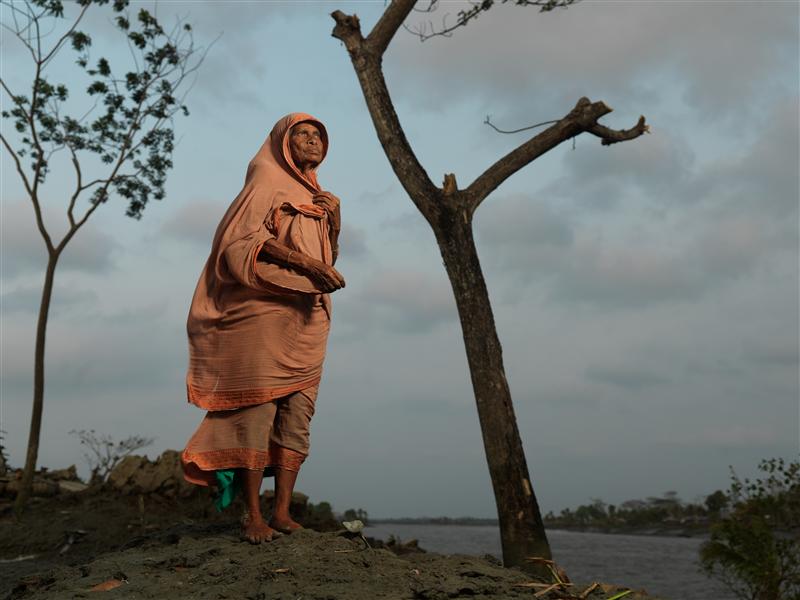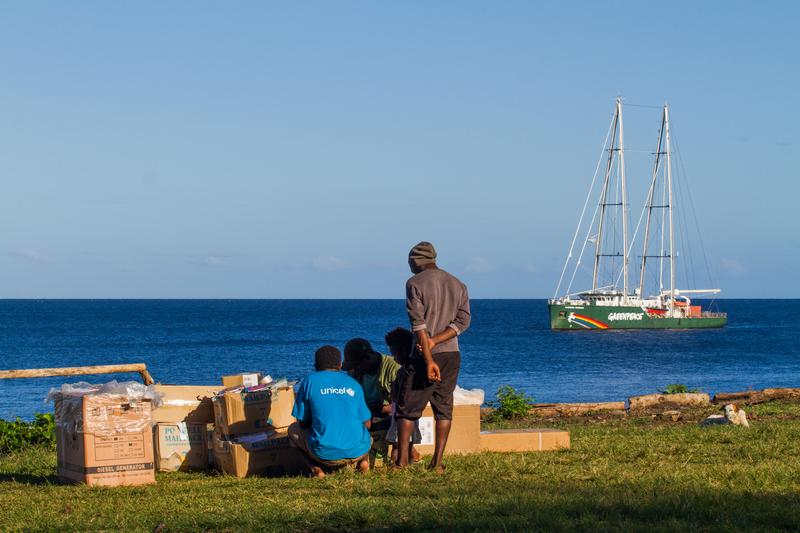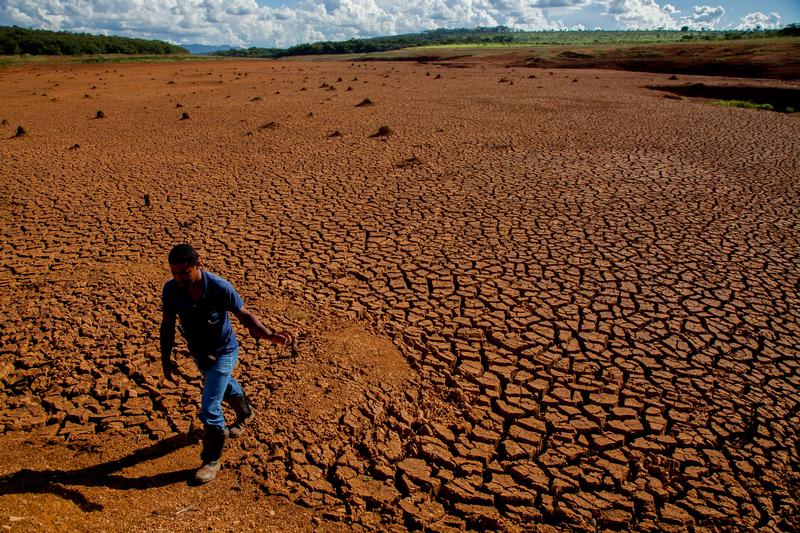World Refugee Day: Fleeing climate change

This article was originally posted by Greenpeace International.
When we consider how long people have been run out of their homes due to extreme weather brought about by climate change, it really took too long for the term “climate refugee” to become part of the popular vernacular.
The Pope’s encyclical came close on Thursday as he spoke about the “tragic rise in the number of migrants seeking to flee from the growing poverty caused by environmental degradation.”
But it was US Secretary of State, John Kerry, who may have given the term some gravitas when he said last month to US ambassadors, “there’ll be climate refugees that all of you will be coping with at some point. If not now, in the not-too-distant future.”
However, he too missed the mark: “not-too-distant future” implies that this is something new. In fact, people fleeing the wreckage brought about by man-made climate change has already been penned into our collective history.
Heat waves cause droughts and make the soil barren, forcing people across the planet to hunt for ever-dwindling water supplies and new farmlands.
A Kirabati man, Ioane Teitiota, reflecting the plight of millions of small island inhabitants, is set to make an appeal for climate change refugee status at the New Zealand Supreme Court. His story is a familiar one for those tracking the tightening link between extreme weather events and distorted climate patterns.
Earlier this month, people from climate-affected communities in Tuvalu, Kiribati, Fiji, the Solomon Islands and the Philippines vowed to seek ‘Climate Justice’ and hold big polluters to account for fuelling climate change. Elma Reyes, together with Greenpeace Southeast Asia and other local organisations is leading Filipinos in petitioning The Philippines Human Rights Commission to investigate the big carbon polluters.
The Greenpeace ship, Rainbow Warrior was recently delivering aid in Vanuatu after the island was devastated by a cyclone that the country’s president attributed to climate change.

However, the people of small island nations are not the only ones who must leave their homes due to cyclones and sea level rise — both of which are the result of rich countries burning fossil fuels at a gluttonous rate.
Heat waves cause droughts and make the soil barren, forcing people across the planet to hunt for ever-dwindling water supplies and new farmlands. Less directly, wars fuelled by desertification, meager rainfall and rarefying resources cause populations to have to run for their lives.
The places where these tragedies happen may be far from each other, but the people affected all have certain things in common. Their lives are already a day-to-day struggle to survive with meager resources and little money. And they are being victimised by people in places far away who have a much higher quality of life and who would prefer not to notice them.
We now have fresh certainty of scientifically verifiable climate change. We also have the creeping popular acknowledgement of its connection to extreme weather. This gives us a new lens through which we can see the past and what forces people to leave not only their homes, but their families, traditions and, often, their ancestral rights.

With “climate refugee” we also have an increasingly ubiquitous term for the 22 million people who were displaced in 2013 due to what the UN Refugee Agency calls “natural hazard events”.
And what do future numbers look like in terms of climate migrants? Bleak.
As UK Shadow Immigration Minister, Chris Bryant said in September 2013: “You can imagine that the UN estimates of 200 million such refugees, more than the total number of worldwide migrants today, may be about right.” These words echo what Greenpeace Germany said in 2007.
It’s for this reason that it is vital the new finance pledges for the Green Climate Fund reach 15 billion USD — because it is the overly consumptive developed nations that catalyse the terrible chain reaction that leads to massive population displacement.
The fund is the way in which the countries that burn fossil fuels, that cause climate change, that create environmental and climate catastrophes, that drive people from the places they live — can take responsibility, by paying to mitigate the damages they have indirectly wrought. It is the least they can do.

